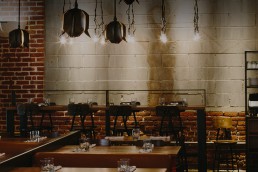It’s a clear principle, but it’s challenging to put into practice in the frenzied restaurant industry. Challenging but possible. A strict time management plan is the key to finally putting an end to chasing the clock and looking forward to productive days in your restaurant, frenzied as they may be. I’ve compiled some of my favourite time management tactics below. It’s one less thing for you to spend your valuable time doing.
Keep an activity log
The first step towards better time management is to understand how you are spending time unproductively. So keep a detailed activity log for a week. Divide it into sensible intervals (for example, 15 minutes) and record everything you do in a day. This includes idle tasks such as smoke and lunch breaks. At the end of the week, analyse how you spent your time and identify distracting, unproductive and redundant tasks.
Plan and organise
Once you’ve figured out how your time goes to waste, you’re in a better position to optimise it. Now you can plan your ideal week. Organise tasks according to priority so that the important tasks always get done. Interruptions are bound to happen, but with the help of a guideline, you get to assess whether the interruption is more important than what your plan says you should be doing. If it is more important, you still have enough control over your week to re-adjust instead of winging it until the end of the week when everything is urgent and nothing is done.
Innovate
There are a myriad solutions you can explore to help you optimise the management of your restaurant. From an intelligent point of sale system that simplifies inventory and reporting to software that can automate your accounting, modern technology has made it easier for restaurateurs to focus on the running of their establishments. In a few years, technology will be a driving force for business development in the restaurant industry. Why not get involved now?
Keep a well-run calendar
Time management in the restaurant industry stretches beyond the daily and weekly chaos. For example, there’s always the monthly stock-take and the annual audit to anticipate. Without a plan, these can catch you off-guard, derail your momentum and hamper your productivity. So ensure that your time management synchronises with your calendar. It’s good to plan your calendar for a quarter, but it’s safer to plan for six months.
Don’t take shortcuts
Shortcuts are useful but costly. So when it comes to overseeing a restaurant, it’s best to avoid them. Imagine, for instance, a patron getting food poisoning because of food that is poorly stored, cleaned or prepared. Rushing through tasks gets them done a lot quicker, but at what cost? Take your time to perform tasks thoroughly so you don’t have to do them again.
These little tricks have worked wonders for my time management.
Related Posts
28th February 2018
The power of mobile PoS sits in the palm of your hand
Keeping up with technological…
28th February 2018
How to stop fraud and theft from eating into the restaurant industry
Operating a business in the restaurant…
28th February 2018
Benefits of integrating PoS and accounting for effective financial planning
Financial planning plays a major role…






